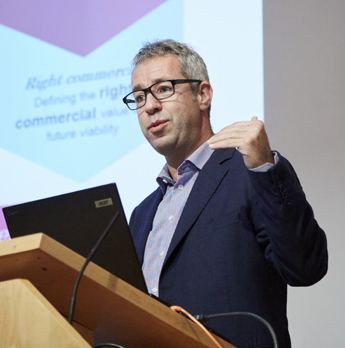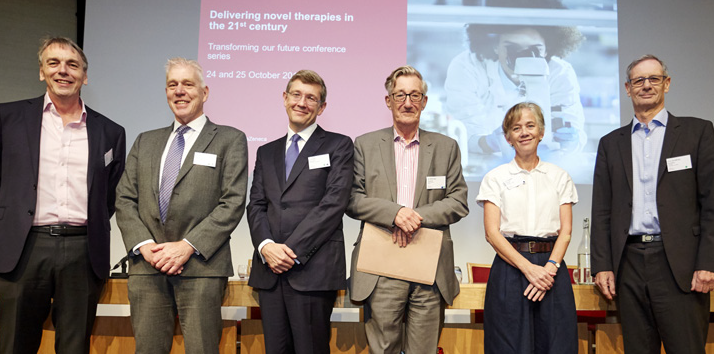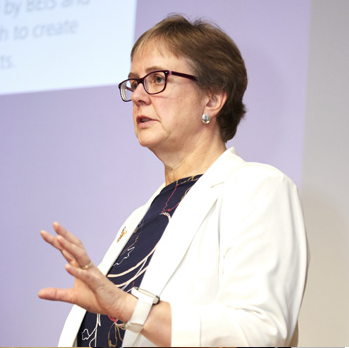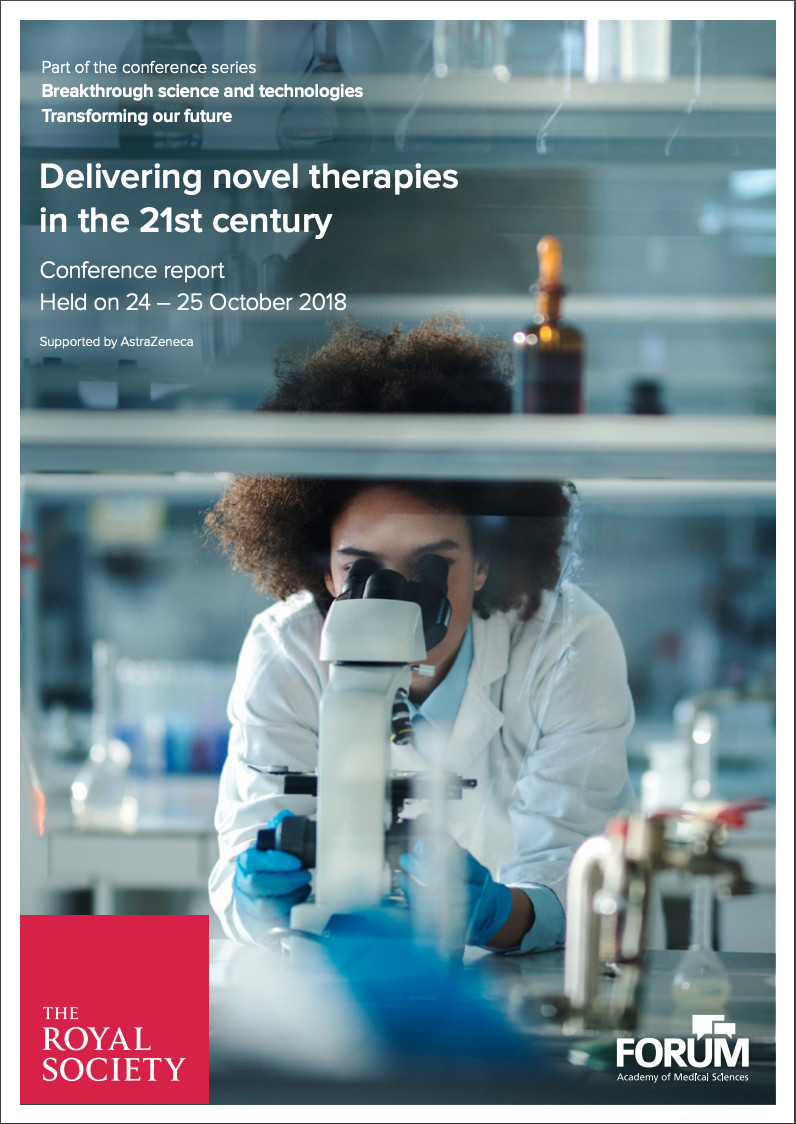Last October, the Academy hosted a FORUM conference, 'Delivering novel therapies in the 21st century', as part of the Royal Society's ongoing conference series 'Breakthrough science and technologies: Transforming our future'. Across two days on Wednesday 24 October and Thursday 25 October the conference brought together scientists, technologists and experts from across academia, industry, the NHS and public health to discuss how future medicines may impact upon the current challenges facing human medicine and how we may best prepare for them. The conference was supported by AstraZeneca and formed part of the Academy of Medical Science's ongoing FORUM programme.
The first day of the conference considered the emerging and state-of-the-art therapeutic modalities and drug delivery systems and the impact that these are likely to have on a range of diseases with high unmet need. Dr Menelas Pangalos FMedSci of AstraZeneca delivered the keynote presentation opening the conference by discussing the work of AstraZeneca and their target to make every drug ‘druggable’. The presentation was then followed by a number of distinguished speakers who spoke on the various ways disease biology is exploring new drug modalities such as enhanced biologics, research tools and drug delivery systems such as exosomes and liposomes that will provide safer and more effective therapies.

These presentations were followed by an illuminating panel discussion on the manufacturing and scale up challenges facing these promising new innovations, chaired by Dr Nicholas Medcalf, UK Research & Innovation.
The panel touched upon a variety of key issues facing the development of novel treatments; including how manufacturing must evolve to face new challenges involved with producing advance therapeutics and personalised medicines, such as small batch size, cost and fast turnaround due to the limited stability of the treatments. In addition, the panel discussed how researchers, regulators and manufacturers must work together to overcome limitations in the regulatory framework that has yet to define personalised medicine and how some novel therapies may struggle to fit in the current paradigm.

On the second day of the conference, these therapies were put in the context of the accompanying social and technological environment, including aspects such as data and digital technologies, new ways to value medicines, the vast potential of genomics and how the NHS might be prepared to adopt these new therapies. The panel on the second day, chaired by Professor Dame Angela McLean FRS touched on the continuing digitaization of healthcare and how regulation might be beneficial in assauging public concerns on sharing data.

In the closing keynote address, Professor Dame Julie Moore of Warwick University discussed how the NHS needs evolve to take advantage of new medicines and technologies and how it can work to increase its impact across both UK industry and wider society.

The event was held as part of the Academy's FORUM programme, if you would like to know more about the forum please email [email protected]. The conference report has now been published and can be found on the right hand side of this page and on the Royal Society’s website.
